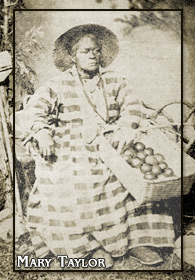Underground Railroad Quilt Code

Secret messages in the form of quilt patterns aided slaves escaping the bonds of captivity in the Southern states before and during the American Civil War.
Slaves could not read or write; it was illegal to teach a slave to do so. Codes, therefore, were part and parcel of the slaves’ existence and their route to freedom, which eventually became known as the Underground Railroad. Some forms of dance, spirituals, code words and phrases, and memorized symbols all allowed the slaves to communicate with each other on a level their white owners could not interpret. Codes were created by both whites aiding the slaves, and by Blacks aiding the slaves. The Blacks included other slaves, former slaves or free men and women. In slavery, secrecy was one way the blacks could protect themselves from the whites; even the youngest child was taught to effectively keep a secret from anyone outside of the family.

No comments:
Post a Comment